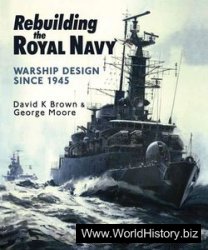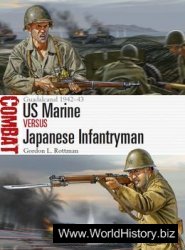A Reference Guide FROM THE Renaissance to the Present
John P. McCarthy fFactsOnFile
An imprint ofinfobase Publishing
Copyright © 2006 by John P. McCarthy
AU rights reserved. No part of this book may be reproduced or utilized in any form or by any means, electronic or mechanical, including photocopying, recording, or by any information storage or retrieval systems, without permission in writing from the publisher. For information contact:
Facts On File, Inc.
An imprint of Infobase Publishing 132 West 31st Street New York NY 10001
Library of Congress Cataloging-in-Publication Data
McCarthy, John P.
Ireland : a reference guide from the Renaissance to the present / John P. McCarthy.
P. cm. — (European nations)
Includes bibliographical references (p. ) and index.
ISBN 0-8160-5378-2 (acid-free paper)
1. Ireland—History—Handbooks, manuals, etc. 2. Ireland—Civilization—Handbooks, manuals, etc. 3. Ireland—Politics and government—Handbooks, manuals, etc. 4. Ireland—Encyclopedias. I. Title. II. Series.
DA911.M34 2006
941.5'003—dc22 2005016259
Facts On File books are available at special discounts when purchased in bulk quantities for businesses, associations, institutions, or sales promotions. Please call our Special Sales Department in New York at (212) 967-8800 or (800) 322-8755.
You can find Facts On File on the World Wide Web at Http://www. factsonfile. com
Text design by David Strelecky
Cover design by Semadar Megged
Maps by Dale Williams © Infobase Publishing
Printed in the United States of America VB Hermitage 10 9 8 7 6 5 4 3 2 1 This book is printed on acid-free paper.
In memory of my uncles,
John and Michael "Mickey" McCarthy
CONTENTS
Introduction vi
History of Ireland 1
Early and Medieval Ireland 3 Anglicization OF Ireland, 1485-1603 15
Ascendancy Ireland, 1691-1800 53
Nineteenth-Century Ireland 74 Achieving Independence 103 Asserting Independence 132 Troublesome Thirty Years 153 Prosperity and Peace, The Era of Bertie Ahern 172
Historical Dictionary A-Z 179 Chronology 477
Appendixes 531
Irish Leaders from 1922 to 2005 533
Maps 537
Bibliography 551 Index 561
INTRODUCTION
Until relatively recently, the study of Irish history in most American universities was part of the study of British history. This was because Ireland was until 1922 united with Britain (and the northeast corner of the island remains linked to this day) and until 1949 a member of the Commonwealth. In addition, the American academic establishment tended to have an Anglophile bias.
Much has changed, not only with the appearance of specific courses in Irish history in many universities, but also with the formation of institutes of Irish studies whereby students can major, minor, and even pursue graduate degrees in the history, the social order, the culture, or the literature of Ireland. This American academic development has happened because of several things. A thoughtful ethnic consciousness on the part of millions of Americans who have Irish ancestry has come about. Ireland has come to play a significant international role by its participation in the European Union and the United Nations. Irish writers, actors, and popular entertainers have achieved an extraordinary degree of regard and celebrity from Nobel Prizes to Academy Awards to the sale of millions of recordings. The astonishing economic prosperity of recent years has put Ireland among the leading nations of Europe and the world in terms of per capita income. The extensive observance of the sesquicentennial of Ireland's historic nightmare, the Great Famine of 1845-49, has served to stimulate interest in Irish history as well as to remind people of the reality of starvation and disease afflicting so much of the contemporary world. Understandably, it may well have been the tragic struggle in Northern Ireland since the late 1960s, with all its features of terrorism, state repression, sectarian hostility, and irredentist aspirations, that has possibly done more than anything else to make the world aware of Ireland. It is hoped that struggle is near resolution.
The fascination with Ireland contrasts with the situation a half century ago. Although Ireland had attained its political independence and had developed successful constitutional and democratic political institutions, two achievements not frequently combined in the twentieth century, the nation drew little world attention, never mind academic interest. Many things accounted for this. One was Ireland's self-imposed economic and cultural isolation ranging from severe economic protection to strict literary censorship. Irish society seemed resigned to economic stagnation and high emigration. The nation's neutrality in the Second World War made some invalidly suspect an Irish bias toward the Axis powers. Many observers became dismissive of any Irish matter when her government launched a campaign to draw world interest to her aspirations for the political unification of the island immediately after the war, a time when the world was witness to millions of refugees, massive reconstruction, and the onset of the cold war. The world's indifference to Ireland was matched by Irish adherence to the attitudes that had brought on their isolation: a sense of moral superiority and a notion that Ireland was a poor and small nation. Postwar poverty remained endemic but many Irish then failed to appreciate that Ireland, even excluding Northern Ireland, is a relatively large European nation in terms of area. Its 32,595 square miles exceeds each of the areas of Belgium, the Netherlands, Luxembourg, Albania, Switzerland, Denmark, Malta, Estonia, Latvia, Lithuania, and the Czech and Slovak Republics.
The history of Ireland in the modern era must be read in terms of its relationship to the neighboring island, from political and cultural colonization to varying efforts at autonomy to actual independence. Since the beginning of the sixteenth century the modernization of the English state has involved the absorption of Ireland, as well as Scotland and Wales. The aim to Anglicize Ireland was further spurred by Ireland's religious identity with England's continental enemies.
Another immensely important aspect of Irish history is the record of millions in the Irish diaspora, particularly those immigrating to the English-speaking world. In a way, Irish talents required a stage bigger than the island itself. These were displayed in the socio-cultural-political achievement of the Irish and their descendants in the United States, in Canada, and in Australia. The Irish also played a significant religious role in foreign places. They tended to dominate the Catholic Church in the above-mentioned areas, despite millions from other Catholic lands settling there. Great numbers of Irish became missionaries, especially to the former British imperial territories in the developing countries of Asia and Africa. Many continue today in this nonconquering and benevolent role, although now increasingly in a secularized form as participants in relief agencies.
Political nationalism is a relatively modern phenomenon, dating primarily from the late eighteenth century, while ethnic identity existed long before. There was an Ireland and an Irish people long before there was nationalism. In the medieval era, when all of Europe formed part of the same Christendom and monarchical authority did not correspond to ethnic boundaries, the king of England had accepted the title of Lord of Ireland. Much earlier, Europeans, many of whom had been converted to Christianity by Irish missionaries, had come to Ireland to study in monastic settlements that played a significant role in preserving classical learning during the "Dark Ages." Perhaps the Irish story is best appreciated not so much as the struggle for and attainment of independence as the participation of the country in a broader theater, whether within the Christendom of old, the British Empire, or, presently, the European Union and the United Nations.
The rightfully deserved attention being given to Irish studies also serves a pragmatic purpose for the world at large. Ireland offers itself as a unique example of being both a modern Western state and an ex-colony. Such credentials enable the nation both to identify with and to guide and assist ex-colonies in the developing world that might have a reluctance to accept the tutelage of other Western powers. The Irish historical experience of absorbing various settlers, even conquerors, ranging from the Vikings to the Normans to the English, and drawing from their strengths, especially in such matters as urbanization, commerce, agricultural modernization, and constitutional institutions, should provide insight to other relatively recently independent nations. One of the crowning glories of modern Ireland is its achievement of and maintenance of constitutional democracy after independence and after a civil war more brutal than the war of independence. That achievement had few parallels in the twentieth century, whether in Europe or elsewhere. Even the incompletely resolved crisis in Northern Ireland provides extraordinary examples of creative efforts at resolution of community conflict. One example is the unique mechanism of power sharing, which guarantees cross-community participation in government even when the same group retains the majority permanently. That may well be an appropriate instrument for resolving community conflict in so many other parts of the world.




 World History
World History









